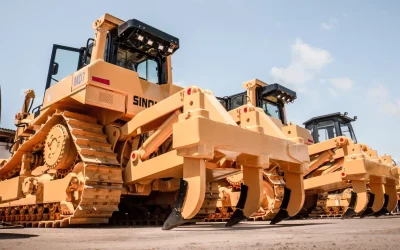5 Ways to Stay Safe When Operating Heavy Equipment
Safety is everyone’s duty on any construction job. Each worker, regardless of rank, must constantly be careful and pay close attention to detail to guarantee that no needless risks are taken. This is especially true if you work with big machinery.
After all, machinery is only as safe as its operator, and your coworkers will be looking to you for guidance.
To keep safe when handling heavy equipment, follow these five safety precautions from Friendly Heavy Equipment Training School.
1. Begin with the Right Training
If you do not have certification from a certified crane operator school, most businesses would not consider hiring you as a heavy equipment operator. Certifications are an important component of any safety process.
They are a means for employers to know that you have undergone standardized training, with a focus on safety curricula certified by the field’s top experts.
To guarantee you are adequately prepared to handle heavy machinery safely, obtain your relevant certificates from a school such as Friendly Heavy Equipment Training School.
2. Always inspect the jobsite before beginning.
Before operating heavy equipment such as a crane, dozer, or other sort of heavy gear, you should triple-check the jobsite for potential risks. Exposed electricity wires, suddenly moving things, and, of course, other persons in the way of the machinery are all examples of risks.
Before commencing your job, be sure the location is free of these and any other risks.
3. Inspect Your Equipment
After securing the workplace, go through your checklist to ensure that everything with the machinery is in excellent operating condition. If you are the heavy equipment operator, this is entirely your duty, and you must use extreme caution to ensure that it is completed correctly.
Check everything from your fuel levels to your machinery’s tires and treads to the hooks, pulleys, and cables you’ll be utilizing.
4. Use equipment only for its intended purpose.
There are several varieties of heavy equipment, each graded for a certain duty. We cannot emphasize enough the necessity of solely employing machinery for jobs for which it has been rated.
Accidents on the workplace are frequently caused by someone pushing their machinery to accomplish a task it was not designed for. It is far preferable to postpone a task until you have the necessary equipment than to cope with a possibly catastrophic or costly mishap on the project.
5. Clear Communication Is Essential
Our final piece of advice is to have an open channel of contact with your employees. You must be able to offer required feedback to one another so that if a safety concern arises, you can address it swiftly.
Of course, job sites can become noisy and chaotic, which is why when you attend West Coast Training’s heavy equipment operator courses, you will learn how to communicate using hand signals, radios, and other alternative methods so that everyone is always aware of what is going on at any given time.
In a nutshell, Friendly Heavy Equipment and Machinery Training School is more than just a training school, it’s a life-changing experience. From farm laborers to skilled operators, from unemployment to successful jobs, our hands-on approach ensures that trainees obtain real-world experience and job-ready confidence.
With industry-grade machinery, qualified instructors, and job placement assistance, we enable people to construct successful futures. If you’re ready to change your life, here’s where you start.




